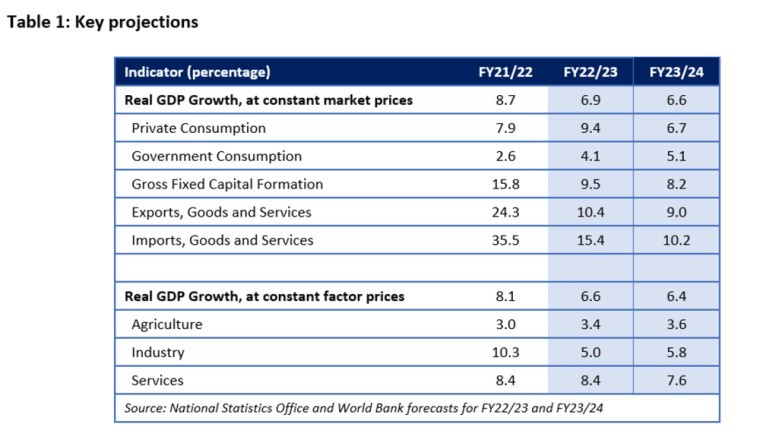Dubai, United Arab Emirates — India’s economy has demonstrated resilience despite a challenging external environment, said the World Bank in its India Development Update in December.
The World Bank has revised its 2022-23 GDP forecast upward to 6.9% from 6.5% (in October 2022), considering a strong outturn in India in the second quarter (July-September) of the 2022-2023 financial year.
"India’s economy has been remarkably resilient to the deteriorating external environment, and strong macroeconomic fundamentals have placed it in good stead compared to other emerging market economies," said Auguste Tano Kouame, World Bank's Country Director in India. “However, continued vigilance is required as adverse global developments persist.”
This is inline what numerous analysts in the investment sector ponder. “Like any other country, the Ukraine war has impacted the Indian economy as well. As we already know, India is the world's third-biggest purchaser of oil after US and China. India has been witnessing a sharp rise in the inflation rate since the start of the Russia-Ukraine war due to a spike in crude oil prices in the international market. But the impact of the crisis in India was less compared to other developed nations,” commented this years’ macroeconomic developments Syam K.P., a financial analyst of Gulf Brokers, in an interview for Trader-Magazine.com
India’s external position has also improved considerably over the past decade. “The current-account deficit is adequately financed by improving foreign direct investment inflows and a solid cushion of foreign exchange reserves - India has one of the largest holdings of international reserves in the world,” World Bank reports.
Syam K.P. confirms the potential for further foreign investments´ growth: “In the long run, there are chances India can beat China and become the next manufacturing hub in sectors like electronics and automobiles, but it will not be as simple as it looks. Recently, Apple revealed that the iPhone maker is expected to shift up to 25% of its iPhone production to India by 2025 to reduce its reliance on China-based operations.”




